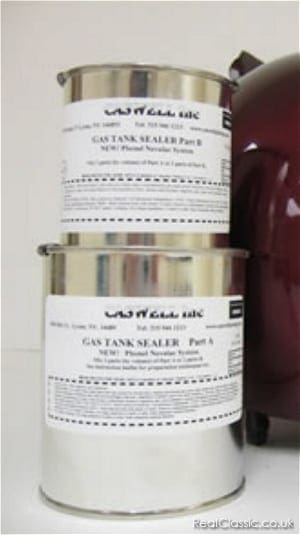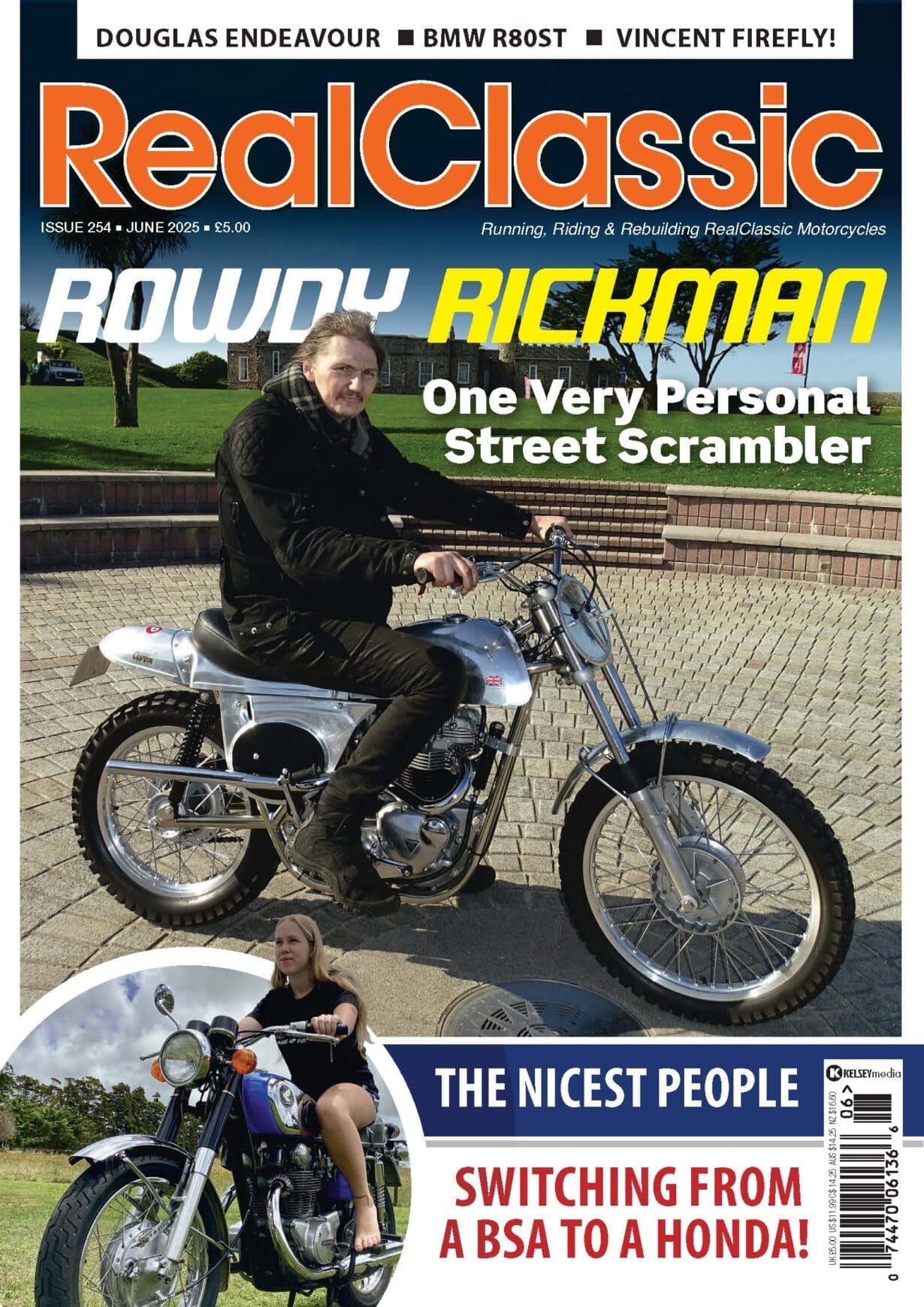
The first fuel additives are coming onto the market to combat the effects of ethanol in petrol. As yet, they’re unproven, but there are some other things you can do if your old bike is suffering from the ethanol effect…
We recently posted the full QintetiQ report into the effects of the rising level of bio-fuel in petrol (look here if you’d like to read it). Some of the conclusions about E10 – petrol with 10% ethanol content – are indeed unsettling: ‘it is estimated that the majority of vehicles ten years old or older will not be compatible with E10 due to fuel system material incompatibility issues… approximately 8.6 million vehicles will be unable to run on E10…Vehicles ten years old or older, carburettored vehicles (including powered two wheelers) and first generation direct injection spark ignition vehicles should not be fuelled on E10.’
Meanwhile, the first commercial additives which are supposed to combat ethanol’s harmful effects have arrived at RCHQ. We were a little surprised to see that the PR blurb with the product quoted the Federation of British Historic Vehicle Clubs in describing the problem, almost as if to suggest that the product itself was recommended by the FBHVC. That isn’t the case: the FBHVC are currently testing seven different additives to check their efficacy and they point out that ‘corrosion inhibitors should overcome many of the problems associated with the inclusion of ethanol in petrol but will not address material compatibility issues.’ When/if the Fed do endorse a commercial anti-ethanol additive, we’ll let you know which one it is.
|
|
Leaky bikes on Right Now…… |
In practical terms, this means we’re all going to become rather more familiar than we’d like with stripping and cleaning fuel systems. If your old bike suddenly suffers from mysterious poor running then gummed-up carbs pipes or taps are the first items to check. If you buy replacement components, then check with the supplier that the perishable parts are ethanol resistant. Ironically, fuel filters themselves can be attacked by the ethanol so the very component which you fitted to protect against the issue becomes part of the problem itself…
Specialist Paul Goff now stocks chrome-plated petrol taps for Triumph, Norton and BSA bikes of the 1960s and 70s which have a new type of ethanol-resistant rubber seal fitted. However, there are plenty of older stock taps still on the market – and rubber is one of those items which the ethanol converts into a nasty gooey mess that blocks your bike’s fuel flow. Ironically, the original types with brass or plastic internals and O-ring seals are less troublesome but eventually the seals will fail and they will leak. So don’t replace original items until you absolutely have to!

Paul’s replacement fuel taps cost £9.95 each or £19.90 for two plus delivery, from www.norbsa02.freeuk.com or 01494 868218.
Better yet, Paul has just sourced a new alternative tap. This is a traditional push on / push off type as fitted to many bikes of the 1950s. This tap has Teflon seals (PTFE) which are impervious to ethanol. It’s a top quality item, CNC machined and nickel plated with a stainless steel filter. These taps are available with a 1/8 BSP or the more common 1/4BSP thread (1/4BSP is about ½” in diameter). They’re more expensive than the standard-type tap – but it might be worth the expense as a preventative measure if you find you are being plagued by problems with your fuel system. They cost £24.95 each plus delivery.
The other major issue with ethanol and motorcycles is the effect that it has on old petrol tanks. Fibreglass tanks are especially susceptible, and older tank sealants are also vulnerable to the effects of a higher level of ethanol in petrol. So if you restored your bike 10 years ago and sealed a leaky petrol tank back then with a commercial sealant, then the chances are that modern fuel will interact with that sealant. You’ll find a lot of gummy yuck in the tank, which often gets drawn into the fuel system, and your tank may well leak again.
Unfortunately, the only way we know to fix this is to go through the whole sealing process again, using an ethanol-resistant interior coating. John at Caswell Europe has become something of an expert on the subject and is happy to offer advice; he sells a suitable product called GTS 1750, a novolac epoxy coating, and other options for different types of petrol tank. See www.caswelleurope.co.uk/gastank.htm or call 01420 474961.
————–




